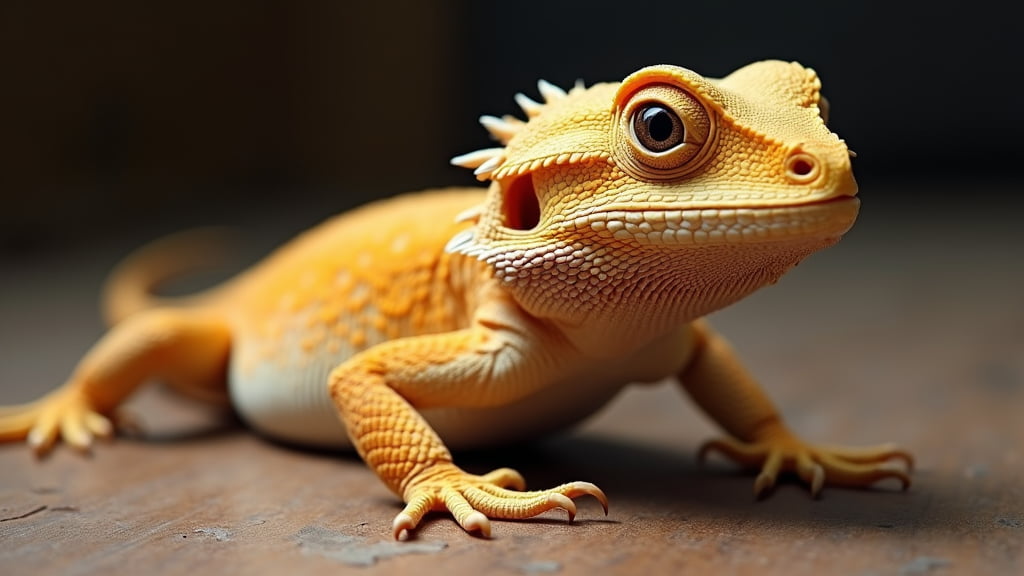Bearded dragons are beloved pets known for their docile nature and quirky behaviours. As an experienced owner who has had the pleasure of caring for these fascinating reptiles, I’ve had my fair share of emergency situations. Knowing how to respond swiftly and correctly can make all the difference. This guide will walk you through the essential steps for bearded dragon emergency care, ensuring you’re well-prepared to handle any unforeseen circumstances.
Understanding Emergency Situations
Emergencies involving bearded dragons can range from minor injuries to life-threatening conditions. Let’s look at the main types of emergencies you may encounter.
Common Bearded Dragon Health Issues
Bearded dragons are generally hardy, but they can still face health issues such as:
- Impaction: This occurs when a bearded dragon ingests a substance they can’t digest, leading to a blockage in the digestive tract.
- Dehydration: Signs include sunken eyes, wrinkled skin, and lethargy.
- Respiratory Infections: Symptoms include sneezing, wheezing, and mucus around the nostrils or mouth.
Recognising Signs of Distress
Bearded dragons are experts at masking their discomfort, making it crucial for owners to be vigilant. Common signs of distress include:
- Loss of Appetite: A sudden lack of interest in food can indicate underlying health issues.
- Unusual Lethargy: While dragons enjoy basking, prolonged inactivity is a red flag.
- Visible Injuries: Cuts, swelling, or changes in skin colour should be promptly addressed.
Immediate Care Steps
In an emergency, your first instinct might be panic, but staying calm is vital. Here are some immediate care steps to follow when your bearded dragon faces a health emergency.
Assess the Situation
Quickly but gently examine your bearded dragon to determine the severity of the issue. Look for obvious signs like bleeding, swelling, or changes in behaviour.
Stabilise the Dragon
- Wrap your bearded dragon in a soft, warm towel to keep them comfortable.
- Place them in a quiet, safe environment away from other pets or loud noises.
Contact a Vet
As tempting as it might be to try online solutions, consulting a vet is crucial for serious emergencies. Have your vet’s contact information handy and don’t hesitate to reach out.
Specific Emergency Care Scenarios
Different emergencies require different responses. Below, we discuss how to handle some of the most common emergency scenarios.
Impaction
Symptoms of Impaction
Your bearded dragon might be impacted if they show signs of:
- Constipation
- Swollen abdomen
- Lack of appetite
What to Do
- Warm Baths: Gently give your dragon a warm bath to stimulate bowel movement.
- Massage: Carefully massage the lower abdomen to help move the blockage.
- Immediate Vet Visit: If there’s no improvement within a day, seek veterinary assistance immediately.
Dehydration
Symptoms of Dehydration
Signs include:
- Sunken eyes
- Wrinkled skin
- Lethargy
What to Do
- Hydration: Offer fresh water and mist their enclosure.
- Electrolytes: Purchase a reptile-safe electrolyte solution if dehydration is severe.
Bear in mind that persistent signs of dehydration necessitate a visit to the vet to rule out other underlying causes.
Respiratory Infection
Symptoms of Respiratory Infection
Keep an eye out for:
- Wheezing
- Mucus around nostrils or mouth
- Gaping mouth
What to Do
- Humidity Control: Increase the warmth and humidity of their habitat slightly to ease breathing.
- Hydration: Keep them well-hydrated to help clear the infection.
- Immediate Vet Visit: Respiratory infections require prompt veterinary care to prevent complications.
Preventative Measures
Taking preventative measures can significantly reduce the risk of emergencies. Here are some steps to keep your bearded dragon healthy and happy.
Proper Diet
- Offer a balanced diet rich in leafy greens and insects.
- Avoid feeding sand or other substrates that could cause impaction.
Regular Vet Check-ups
Routine veterinary check-ups can catch potential issues before they become emergencies.
Appropriate Habitat
- Ensure the enclosure has the right temperatures, UVB lighting, and humidity levels.
- Regularly clean and disinfect the habitat to prevent infections.
Conclusion
Caring for a bearded dragon requires vigilance and preparedness, especially when it comes to emergency situations. By understanding common health issues, recognising signs of distress, and taking immediate, informed action, you can ensure your bearded dragon remains healthy and happy. Remember, while this guide provides practical advice, always consult a vet for professional guidance. Your bearded dragon’s well-being is worth it.
Meta Description:
Discover essential emergency care tips for bearded dragons. Learn how to recognise distress, take immediate action, and prevent common health issues. Keep your pet safe and healthy!
For more tips on bearded dragon care, check out our Bearded Dragon Nutrition Guide, or visit our partners at the British Veterinary Association for professional advice.

